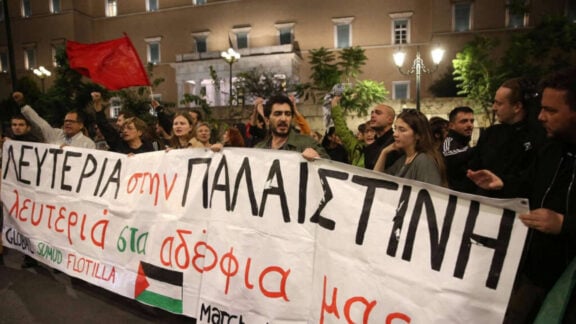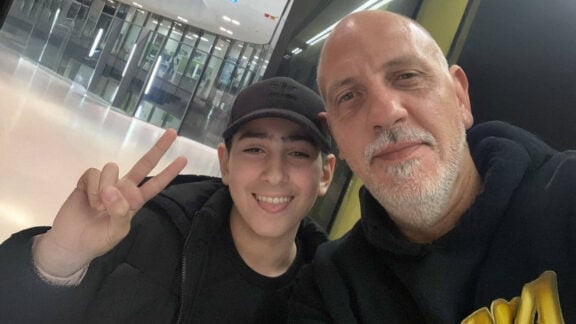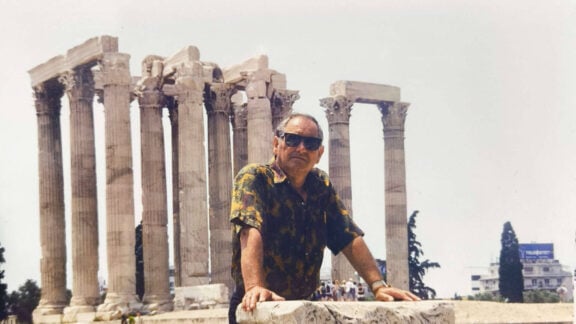Robert Dessaix is one of the great Australian writers. His travel books are masterpieces of warm and inclusive observation. His 2008 book Arabesques is, like the works of the great Greek travel writer Pausanias, a journey through places visited by earlier heroes. Not heroes I suppose, but perhaps giants like the literary giants Oscar Wilde and Andre Gide. These two writers visited Algeria in the 1890s, and it was there that Wilde apparently corrupted Gide into having sex with a young boy. The morals of underage sex are not canvassed by Dessaix. It is as if the prostitution of young boys was commonplace and harmless except for warnings by Gide’s relatives that Wilde was a dangerous man. In the 21st century incidents like these might be cause of a re-evaluation of what Wilde was, his great and imaginative writing aside. Perhaps. But would that be to judge another time and another place, especially from the perspective of an era that has another set of moral values?
This is a complicated issue. The latest Dr Seuss books are being withdrawn because of some possibly racist references. Some commentators have gone further to suggest that the value of the books from the 1950s onwards was lessened because of these passages. Again perhaps. And perhaps there is an argument that for the 2021 child the sentiments in the books might have power to instil a carelessness about racialism.
READ MORE: Melbourne Masterclasses: Greek Mythology – Religion and Art in Ancient Greece
How far back should we go though? Dessaix himself has referred to another children’s writer, Enid Blyton, who has been revised a lot lately. Noddy and Big Ears were supposedly gay. Don’t know about that one, and even so, so what? While looking back can overly criticise, as society becomes more worldly, this revisionism can change too. To be gay is accepted much more now, but the Noddy gay story arose when gayness was a taboo. Modern sensitivities has brought it around. To many, Noddy and Big Ears are okay now and they can be gay if they want. If they ever were gay, that is.
In another case, one of Blyton’s young girl characters, George, wants to be a boy and this has been disparaged of late by commentators who suggest this is not a good role model for children. The argument is along the lines of: why should a girl aspire to be a boy? Is Blyton suggesting that boys are superior? My partner loved George as a child and wanted to be her. She insists she herself never wanted to be a boy, but she wanted to do what boys were able to do in the 1950s. Perhaps Blyton’s George was more a revelation of a barrier rather than a belittling of a sex.
If we are to cleanse thought from old text, then maybe we should go back to Homer, who wrote about rape as a natural right of the victor; or how gods and heroes had sex with their siblings and murdered their children. Vengeance was expressed in ways far beyond anything invented by Mario Puzo, with several gods even tricked into eating their sons. Yes, the times, as written by the ancients, were troubling and at times very weird. Such behaviour today would be an international scandal. Yet we haven’t expunged these horrible tales from the ancient texts. And neither should we. Rape happened and we need to know about it. We should be able to view it from the lens of the time we are in. In 100 years that lens will be different, but the facts of the history will be exactly the same, unless someone decides Homer needs editing.
I hope that never happens.
Phil Kafcaloudes is a writer, journalist and broadcaster. He has been a radio and TV journalist, and has worked for the ABC in South Africa, Vietnam, Indonesia, Malaysia, Singapore, Papua New Guinea, and across the Pacific. His novel, ‘Someone Else’s War’ tells the story of his maternal grandmother, who was a spy in Greece in World War 2. Published in Greek as “Olga’s War” by Psichogios Publications.









